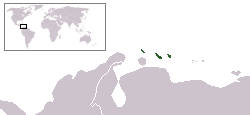You read it right: Timothy Hallet Tracy, the US citizen who was
detained yesterday while trying to leave the country through the Maiquetía airport and who was accused by Nicolás Maduro of destabilizing our nation, had already been detained twice in the last few months. That's what El Carabobeño says. Last time was while he was filming a pro-Maduro rally in Puerto Cabello.
My question: how was it possible he decided to leave the country through the main door if he was a secret agent and had been detained twice before? Couldn't he find a yacht to take him somewhere else? Take a ferry? Go to Colombia by road?
Is
that the way secret CIA agents operate these days? They keep getting caught by our extremely sophisticated intelligence experts until our extremely revolutionary government
decides to detain them for good?

Timothy is a 31-year old man who read English at Michigan University. There, according to his dad, he met some Venezuelan students, became friends and decided to go to Venezuela to shoot a film about the political events in the country. I imagine those Venezuelans were the usual Caracas upper-middle class youngsters who go to US to learn English, and who, in their attempts to bring change to Venezuela, want to follow, yet again, the methods published by
Gene Sharp about non-violent political change. Unfortunately, it seems to me, these guys usually don't pay too much attention to content and to getting some insight into the historical, economic and political histories of the events in the old Czechoslovakia Republic, the German Democratic Republic, Serbia, Ukraine, Georgia or Venezuela. They specially don't pay too much attention about the different identities and myths circulating in our country. In any case, things happen as they usually happen:
Eva Golinger (read about her in
Carrol's El Comandante) will publish a couple of articles in her government-financed newspaper about how the Empire is trying yet again
Otpor!-like tactics for regime-change in Venezuela.
The Maduro criollo media will also have lots of material about how the Imperio is trying to bring down what Chavistas claim to be a revolution.
Venezuelan humble viewers in El Tigre or Punto Fijo will watch the explanations and either think that indeed the gringos are trying anything or think that they are running out of sugar and they have to find sugar and chicken and good maize oil and that's not easy.
I think in this case this Timothy simply wanted to shoot a film that would make him famous. He wanted to experience the emotion of some young revolutionaries who were, indeed, following Gene Sharps ideas and ideals. Now this gringo is detained, his family is worried and gringo diplomants have to go again to a jail to see that one of their nationals is properly treated.
According to the Maduro-military government, Timothy was a US secret agent in charge of destabilizing the nation. According to me - I might be completely wrong - he was a naive man who wanted to be a film maker and live through exciting times.
Meanwhile, the country keeps having the highest murder rate in South America. Those are the priorities in Venezuela.









.jpg)









